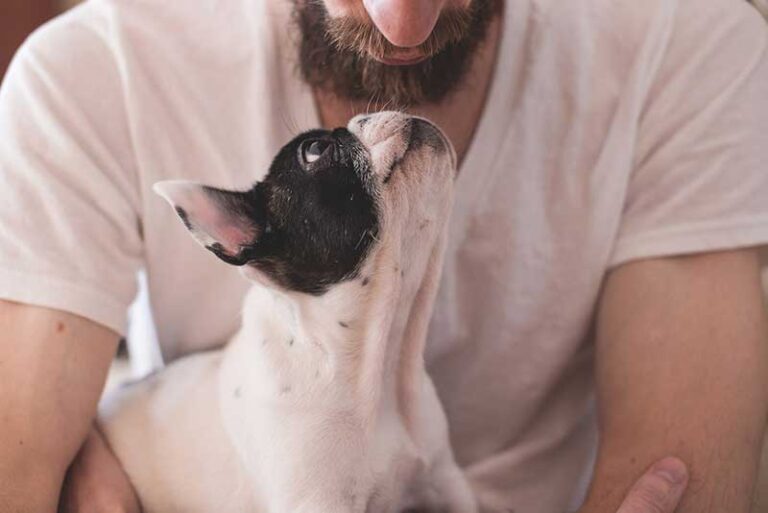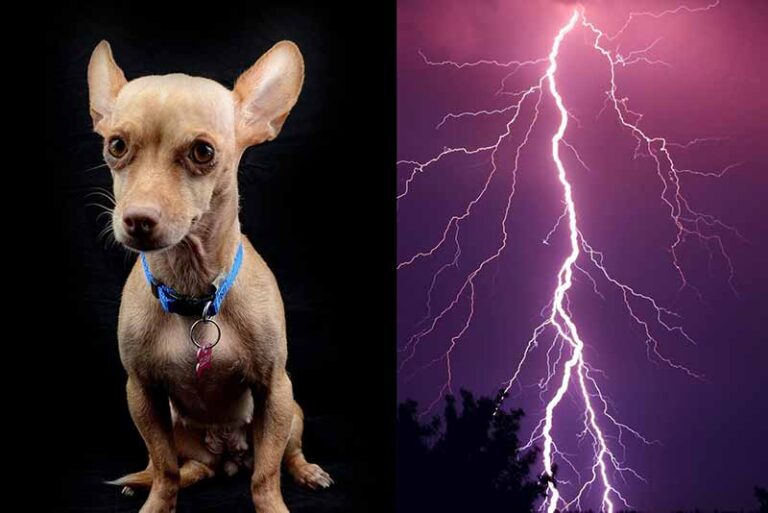I Yelled At My Dog, And He Started Shaking; Why?
If you decide to raise a dog in your home, that means you add one more member to your family. Dogs are domestic animals and perfect human companions. The connection between humans and dogs traces back hundreds of years which is why we call them man’s best friends.
Dogs are lovable, loyal, and fun, but raising a dog is a responsible task. As fun as they are, sometimes a dog can be mischievous and put you in trouble. If your dog is hard to handle, you might get mad, leading you to yell at them.
Is it reasonable to yell at your pet dog? How would it affect them? You might have noticed that most dogs shake when someone yells at them, so let’s find out why.
So, One day I yelled at my dog and he started shaking; why is that? This usually occurs as the dog gets scared because of the yelling. Dogs do not have a vast range of emotions as humans do; nevertheless, they are certainly emotional animals. If you get yelled at by someone, you will feel sad, angry, or frustrated, and the same with dogs. If you yell at a dog, it could probably make them scared and sad. So when they are being yelled at, they shake as a response to the emotions they get in such a situation.
No dog owner would like to scold their beloved pet. However, intentionally or not, there are instances where it happens. Some wrong things that dogs do could make you yell aggressively at them.
However, as mentioned earlier, humans understand things deeper than dogs, so you have to have good patience and control yourself not to yell at the dog because yelling would never solve the problem; instead, it can worsen things.
Keep reading to understand this concern better.
Why is my dog shaking after being scolded?
We usually yell at our dogs when they do something unacceptable, but if you think that yelling will help them understand their mistake, you have assumed it wrong.
This doesn’t necessarily mean you should let your dog do anything they want, whether good or bad. You have to be somewhat strict if your dog misbehaves, but scolding is not a smart thing to do. Yelling or scolding often makes dogs scared which is why they shake.
Scolding can impact a dog in multiple ways. Dogs ace to build a strong connection with their human family. Therefore, if you yell or scold them, they will feel threatened by you, ultimately making them stressed and causing fear in them.
As a dog owner, if you are too harsh training them, there are plenty of chances that your dog could get stressed or scared. When a dog is stressed, they indicate it through body language and gestures, and shaking is one of the common gestures to express it.
Dogs typically shake when they undergo extreme emotions. When they get yelled at or scolded by the family, it will make them confused and scared and result in shaking.
Can dogs get traumatized by yelling?
Yelling could make your dog feel scared and stressed, but will it traumatize the dog? To answer this question, first, let’s try to figure out what it means to get traumatized.
In psychological terms, trauma is a response to an event that someone finds highly stressful. Being traumatized due to a disturbing physical or a mental occurrence could often have a negative long-term impact.
It is not only human beings that face traumas; this is something familiar among dogs too. Not every dog gets traumatized by the same thing; however, scolding or yelling can make a dog traumatized.
Trauma is subjective, meaning one thing that scares someone might not scare another. Nonetheless, loud noises and screams typically scare most dogs, and if they are being yelled at by the family, especially in an aggressive way, they could get traumatized.
What is dangerous about traumas is their long-term impact on your pet. While some dogs learn to overcome and get over it, eventually, some dogs deal with traumas for a very long time. This could put pressure on the dog’s physical and psychological well-being.
What if you yell at the dog unintentionally? Sometimes you yell them out of control. In such a situation, you must be calm and patient to comfort the dog.
If you ensure that you don’t let it happen again and handle the situation correctly, it will not severely impact the dog.
Do dogs get scared when you yell at them?
As the previous sections explain, dogs get scared when you yell at them. Although most dogs get scared due to yelling, how they respond to it could differ.
To elaborate, some dogs get easily frightened by yelling, and right away, you can notice signs such as shaking, trembling, drooling, and attempting to hide. Puppies are highly vulnerable to emotions; hence if you scold them, they will quickly get scared.
However, adult dogs also could be sensitive to scolding and yelling. While most dogs try to pace themselves once they get yelled at, some dogs could react aggressively instead of acting scared.
When you yell at a dog harshly, they feel threatened by you, making them scared, but it could also make dogs aggressive and lead them to behave in a more unsatisfactory manner.
Furthermore, how you yell and how often you yell could impact the dog differently. As already mentioned, no dog owner would want to yell at their pet, but sometimes you have no other option but to yell.
If you yell at your dog for doing something wrong, make sure you do not attempt to comfort them straightaway; it will make them more scared and suspicious.
Give the dog some space and smoothly approach the dog. Take things slowly, and eventually, they will forget what happened, and things will return to the usual way.
Yet, if you keep scolding the dog quite often, it could scare them and create long-term negative consequences.
Shouldn’t I yell at my dog due to his shaking?
Shaking is the typical indicator that a dog shows when they are scared or stressed. So if you notice your dog shaking after being yelled that clearly means they are threatened by you. What would happen if you keep doing this without worrying about their response?
When you raise a dog at your home, you must be responsible and affectionate to take good care of them. Screaming or yelling at your dog for their behavior is unacceptable.
If you had to yell at them, maybe without your intention, make sure you will not repeat it. Especially if the dog starts shaking after being yelled at, you must be extra vigilant and take appropriate actions to help the dog overcome the fear unless it could impact them for a long time.
Shaking is the initial indicator of fear, and if you do not address the issue at the early stages, things could get worse even the dog could get traumatized.
Does this mean no matter what mischievous thing your pet dog does, you must stay silent without doing anything about it? This is where you have to act smart. Sometimes a dog can do things that really increase our temper.
Suppose your dog chewed and ruined one of your brand new cushions; wouldn’t that make you mad? It would. However, firstly you should be aware that dogs do not understand things as humans do, so as a dog owner, you have to be precise with their training.
If you train a dog from the pup stage, there is less room that they would do unwanted things. Though you train your dog, sometimes they can do naughty things, which is normal.
In such cases, the owners have to be very patient. If your dog is being naughty, it is okay to be a little strict about making them disciplined, but do not raise your voice all the time.
You can use plenty of positive mechanisms to mitigate your dog’s troublesome behavior instead of scolding.
Final thoughts about the reasons my dog started shaking after I yelled
Here are some final thoughts to wrap things up. The focus of this article was understanding why dogs shake when they are being yelled at. As discussed thoroughly, dogs are emotional animals; if their owners scold or yell at them, they will feel scared and stressed.
As an indicator of these emotions, they shake. Even though dogs have feelings, their emotional capacity is different from that of humans. Therefore scolding will not help to make them understand their mistakes. Dogs sometimes can be troublemakers.
Proper and consistent training can address this issue to an excellent extent, but some dogs could still cause trouble. If you keep yelling at the dog for it, they will get scared or even traumatized.
So now you might understand that yelling is never a good option. If your dog does something that doesn’t necessarily please you, think about how you will solve it before raising your voice.
Thank you for reading this post. Stay tuned with Jack Russell Owner for more interesting posts about your favorite dog breed.








